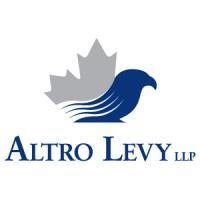Pierre, a client of ours from Quebec, came to us with a problem. He owned a condo in Florida, and since Micheline recently passed away, he did not want to go to the vacation home anymore and wanted to sell it. The title ownership was in Micheline’s name alone, but her Quebec notarial will left all of her assets to Pierre, including the condo. Unbeknownst to Pierre, even though his notary told him their notarial wills would avoid probate in Quebec, he found out that they did nothing to avoid probate in Florida! Not only would he have to wait a year to sell the condo, but also have to gather numerous documents, hire and pay a lawyer to deal with the probate court in the county where the property is located, and on top of it all, since his wife’s will was written in French, he would have to pay a translator to get a copy in English! What a mess!
So what exactly is probate?
Probate in the United States is the legal proceeding that enables the decedent’s estate to be distributed. The process involves: determining the validity of and admitting the will to the probate court, appointing the personal representative, gathering an inventory of the decedent’s assets, paying all taxes, debts and expenses of the estate and finally, distributing the assets to the named beneficiaries.
Probate in the U.S. can be extremely costly and can take anywhere from six to eighteen months on average, depending on how backlogged the probate court is and how large the estate is. As well, any asset being probated is essentially “frozen” and thus cannot be sold, transferred or refinanced until the process is complete.
Certain assets are deemed non-probate assets in the U.S. For example, those with a designated beneficiary such as payable/transfer on death accounts, life insurance policies, retirement funds, etc. U.S. real property owned jointly with a spouse or with rights of survivorship is also exempt from probate, as the asset is transferred automatically to the survivor. Unfortunately, however, with property owned jointly, the surviving spouse/owner cannot avoid probate upon second to die.
For American residents, U.S. probate is an inevitable part of life (or death), as their entire estate will be probated. For Canadians, it is quite the hassle to have to go through this process when your original intent was to buy a vacation home to help relax, de-stress, and enjoy life.
Many different ways exist for Canadians to partially or completely avoid probate in the U.S., but one must be careful not to complicate their situation even more. For example, one of the most commonly used “solutions” to avoid probate is to add your children on title as joint tenants with rights of survivorship. Although it may be fairly easy to achieve, you may be opening yourself up to a host of problems by doing so. Firstly, by adding more people on title, you may increase your chances of having an incapacity issue. If any of the owners on title become mentally incapacitated, you will have to go through a lengthy and expensive guardianship procedure, all the while having a frozen asset. Secondly, since it is rare that your child will actually pay for their share of the property, you may be opening yourself up to a gift tax problem! Canadians cannot gift large amounts in the U.S. without being liable to the taxman. (For further information, please see Shlomi Steve Levy’s recent blog on Gift Tax). Lastly and as previously mentioned, adding more people on title will not avoid probate on last to die.
As you can see, avoiding probate is not a walk in the park. There are various solutions to the probate issue, but since each set of facts for each individual is different, it is always important to consult with a cross-border specialist to see what works best for you.




 />i
/>i
